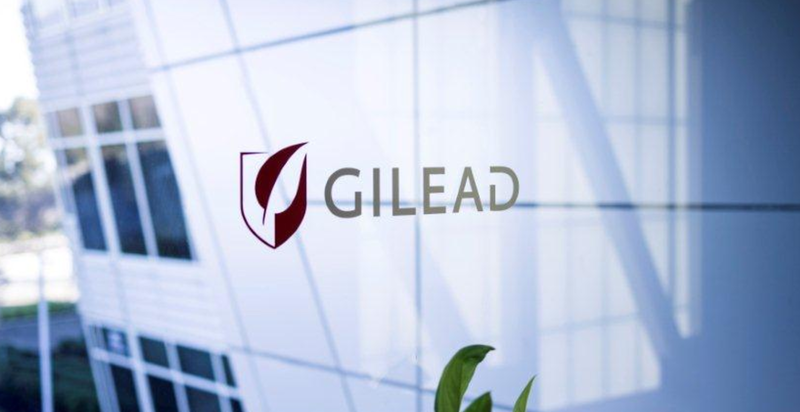Last month, rumors out of Bloomberg whispered that Gilead Sciences, more known for its COVID-19 work these days, was gearing up for a major stake in immuno-oncology player Arcus.
Today, we learned those rumors were true, and there’s some big bucks action behind it: Gilead is paying $175 million upfront with a $200 million equity investment weighted in.
But that’s not all: In a backloaded biobucks pact, Arcus could also nab up to $1.225 billion in opt-in and milestone payments “with respect to its current clinical product candidates.”
The headline part of the deal sees Gilead join companies including Merck and Roche in the race to bring an anti-TIGIT antibody to market, which could be the future of immuno-oncology, while also gaining a hand in the checkpoint inhibitor research space.
Arcus has recently moved its anti-TIGIT candidate, AB154, into a phase 2 trial in patients with non-small cell lung cancer. In the trial, Arcus hopes to show AB154 improves the efficacy of anti-PD-1 checkpoint inhibitors—in that case, the biotech’s own zimberelimab.
The potential for the targeting of TIGIT, another immune checkpoint, to enhance the efficacy of drugs such as Merck’s blockbuster PD-1 Keytruda has attracted the interest of a who’s who of leading cancer companies.
The specifics of the deal break down like this: Gilead gains access to Arcus’ current and future investigational immuno-oncology products, which includes “immediate rights” to zimberelimab as well as the right to opt in to all other current Arcus clinical candidates—which include AB154, AB928 and AB680—upon payment of an opt-in fee that ranges from $200 million to $275 million per program “after delivery of a qualifying data package.”
If Gilead opts in to the AB154 program, Arcus is eligible to receive up to $500 million in potential future U.S. regulatory approval milestones. It’s a long-term thing: Gilead will receive the right to opt in to all other programs that emerge from Arcus’ research portfolio over the next 10 years, upon payment of an opt-in fee of $150 million per program after Arcus’ delivery of a qualifying data package.
It can also add two members to the biotech’s board, with Gilead also paying out toward ongoing research and development to the tune of $400 million. This fits in with the Gilead-Galapagos play: not buying out the biotech completely, but heavily involving itself financially and operationally to balance interest with independence.
“We are very pleased to build on Gilead’s growing presence in immuno-oncology with this important new strategic collaboration with Arcus,” said Daniel O’Day, chairman and CEO at Gilead.
“Gilead is committed to accessing the world’s best innovation in immuno-oncology and our agreement with Arcus further demonstrates that commitment. By gaining access to its broad, diverse pipeline and Arcus’s clear strengths in discovery and development, we believe that our partnership with Arcus will significantly accelerate our progress in developing transformative new therapies for cancer.”
“We believe Gilead is an ideal partner for Arcus with its focus on thoughtful and purposeful science, vision to provide transformational therapies in the oncology setting and deeply experienced scientific leadership,” added Terry Rosen, Ph.D., chief at Arcus. “This collaboration will allow us to act as one team to maximize the clinical and commercial potential of Arcus’s therapeutic development candidates, greatly amplifying and expediting the opportunities in our pipeline and discovery programs. At the same time, this partnership structure facilitates Arcus’s path to becoming an independent, fully integrated biopharmaceutical company.”
Arcus had a market cap of $716 million before reports of Gilead’s interest in April drove shares up as much as 54%. Though the headline numbers are high, the overall deal is still pretty small for Gilead, which struck a $4.9 billion deal to buy Forty Seven a few months ago and paid $11 billion to acquire Kite and its cell therapy work back in 2017.
AB154 is looking to go up against Merck and Roche. Merck began testing its drug, MK-7684, in humans late in 2016 and is now gearing up to initiate a clutch of sub-studies to assess it in combination with Keytruda in melanoma patients.
Roche has a still broader roster, with eight trials of anti-TIGIT prospect tiragolumab either enrolling patients or due to start doing so (COVID-19 disruption pending). The roster of trials features two phase 3 lung cancer studies.
Companies that want to buy their way into the TIGIT field have a few options. Other companies with anti-TIGIT drugs in their pipelines include iTeos Therapeutics and Mereo BioPharma.
The companies and their investors are betting TIGIT is the long-sought target that will take the efficacy of PD-1/PD-L1 checkpoint inhibitors to the next level. However, earlier efforts to enhance the efficacy of checkpoint inhibitors have stuttered or flamed out completely, most dramatically when the failure of Incyte’s epacadostat took down the I-O field.

